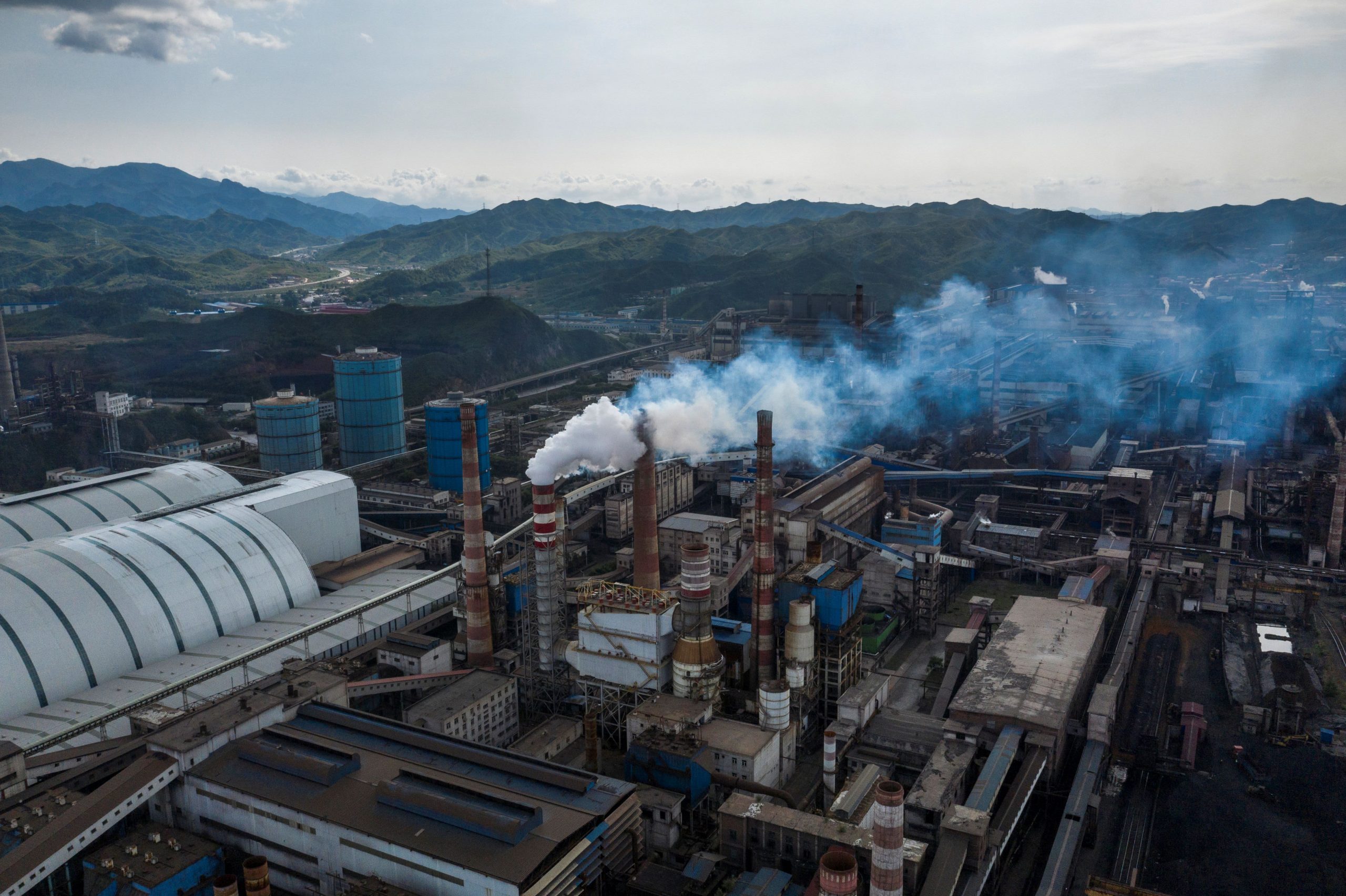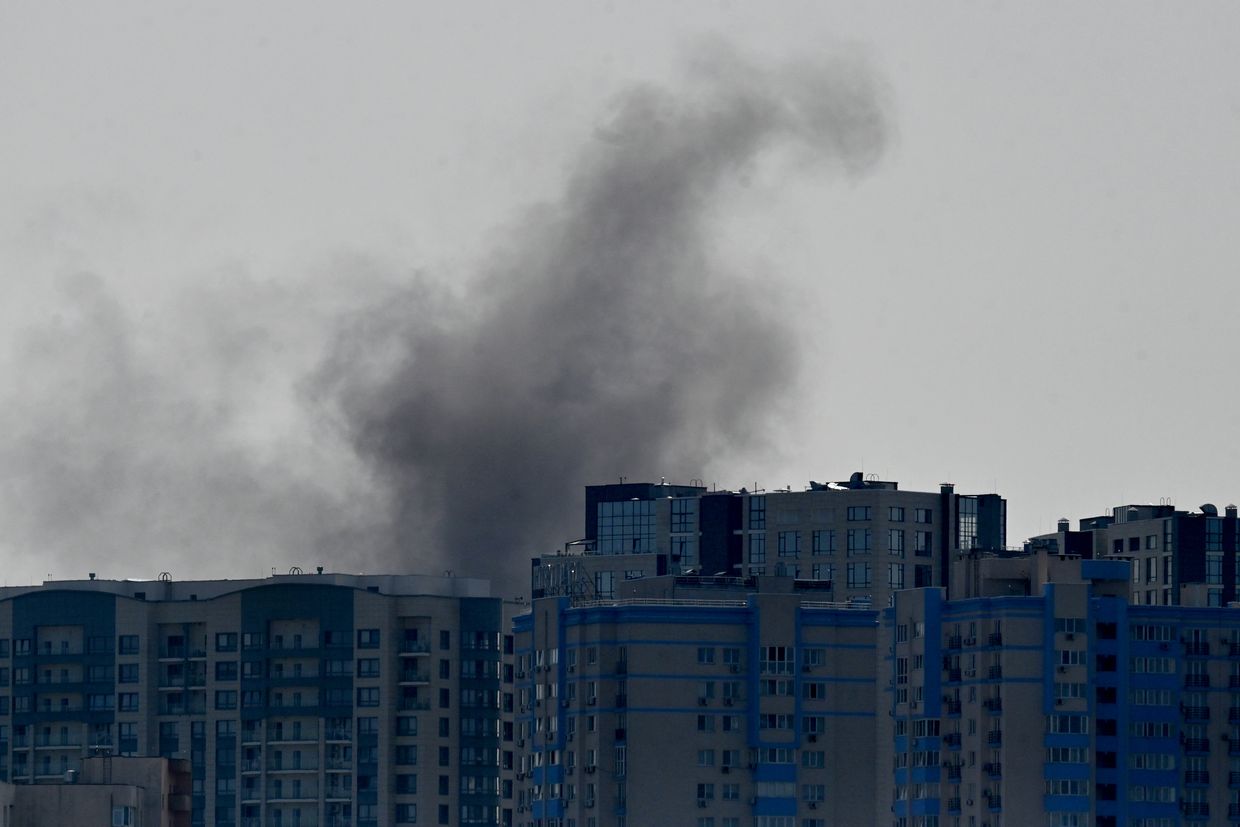
This aerial photo taken on June 6, 2019 shows a steel plant in Chengde, Hebei Province, north China.
Fred Dufour | Agence France-Presse | Getty Images
SINGAPORE – A new wave of Covid-19 cases in the Chinese province of Hebei has caused transportation restrictions in the main steel production area.
The closures in Hebei include areas around the steel mills, limiting the ability to transport the metal to customers. China is the world’s largest steel producer and analysts say Hebei contributes more than 20% of the country’s total production.
Coronavirus cases have soared in Hebei since the start of the year, prompting the province to close its capital, Shijiazhuang, and at least two other regions. In an attempt to contain the spread of the Corona virus.
The restrictions are unlikely to affect steel production for now, but they could hurt demand by incentivizing the manufacturing sector to shut down earlier than planned before the Lunar New Year holiday, commodity data provider S&P Global Platts said in Earlier this month.
Analysts say the demand and prices of raw materials used to make steel such as iron ore could also rise.
Limitations in Hebei
Shanghai-based Chinese mineral data company Mysteel said in a note last week that steel deliveries by truck were suspended in Hebei, making the railways the only way to transport steel. The report said that the dead ends have led to the complete accumulation of iron in the main factories in the area.
“The partial closings have restricted cargo transportation, which has led to an increase in stocks held by local steel mills instead of agents in the first half of January,” said Atilla Weidnell, founding partner of Singapore-based Navigate Commodities. Email to CNBC on Monday.
He added, “We have heard anecdotal evidence that some traders and stockpiles are reluctant to restrict cash flow in the event of prolonging or intensifying the” soft close “.
S&P Global Platts said inventories are rising at Jingye Iron & Steel Factory in Shijiazhuang, capital of Hebei. The company quoted a source at the plant, which produces 13 million metric tons of crude steel annually.
The manufacturing and construction sectors have ceased to function
Manufacturing and construction sites in China are set to stop operating earlier than usual before the Lunar New Year holidays between February 11-17. This is likely to affect the demand for steel, which is widely used in these sectors.
Standard & Poor’s Global Platts said the government had advised manufacturing and construction workers to return home before the holiday travel peak.
“According to market sources, Beijing has done so in an effort to reduce the likelihood of a spike in COVID-19 cases during and after the Lunar New Year holiday,” the company wrote.
An earlier business halt indicates that steel demand will decline, causing stocks to rise elsewhere.
S&P Global Platts added, “Some traders have said that they are not ready to increase their steel stocks because they expect to have to hold them for a much longer period than usual, and with the continued rise in steel prices, the build-up of inventories will put pressure on their cash flows.”
Impact on steel and iron ore
Daniel Hines, chief commodity strategist at Australia’s ANZ bank, told CNBC on Monday that the risks could spread to iron ore.
“There are concerns that the further rise in coronavirus cases in Hebei may lead to the closure of some steel industry areas. This will obviously affect the demand for iron ore, as steel mills are likely to see supply chains disrupted, affecting steel production. , “He said in an email.
Energy research consultancy Wood Mackenzie said the ripple effects could already be seen in the costs of raw materials used to process steel such as coke.
Coke prices have risen, and are about 450 yuan per ton higher than a year ago, according to Qilu Wang, an associate researcher with the company.
“This is due to the restrictions imposed on inter-provincial transportation in Hebei provinces, which led to an increase in transportation fees,” said Wang.
While this could in turn support steel prices, Wang predicted that it could weaken moderately overall as traders hoard less of the commodity due to the uncertainty in Covid.

“Професійний вирішувач проблем. Тонко чарівний любитель бекону. Геймер. Завзятий алкогольний ботанік. Музичний трейлер”






